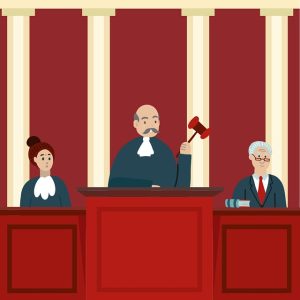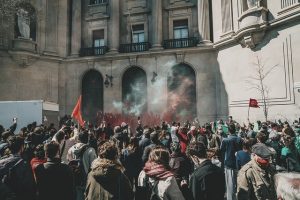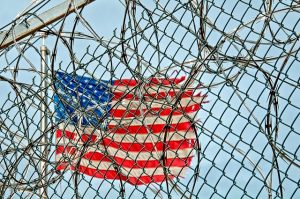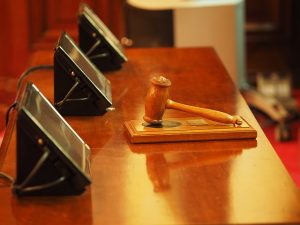House Speaker Nancy Pelosi announced last Tuesday (September 25, 2019) that the House of Representatives is set to move forward with an impeachment inquiry.
Speaker Pelosi stated that she made the decision to endorse the inquiry after conferring with key members of the Lower House, about the facts and events that led to Donald Trump’s admission that he asked the president of Ukraine to investigate Joe Biden and son. Such events included Trump’s suppression of a related whistleblower complaint filed by an intelligence officer.
What Does an Impeachment Inquiry Denote?
First off, the term impeachment does not necessarily mean that the subject of an impeachment inquiry will be removed from office once evidence of wrongdoing leads to a formal inquiry or investigation.
The results of the “impeachment inquiry” provides the basis on which the House of Representative will exercise the power to file formal charges against a president, vice president or civil official currently holding office, found in violation of his oath to perform duties by abusing the authority afforded by his position.
After the “impeachment inquiry” has been completed, the so-called “articles of impeachment” will be drafted.
What do the “Articles of Impeachment” Signify?
Once the House of Representative wraps up the inquiry procedure, all evidence of wrongdoings of the elected official under impeachment inquiry, will be used to draft a set of charges known as the “Articles of Impeachment.”
The term articles basically refer to the reasons why the official being impeached will undergo trial and thereafter receive judgment on whether he shall be removed from office or not; or if necessary, be convicted for unlawful acts committed.
What kind of charges will the “articles of impeachment” include?
The standard charges for which a President, Vice President or a civil official of the U.S. government can be impeached are generally termed as acts of “bribery, treason, or other high crimes and misdemeanors.”
All three types of charges denote actions that have been carried out through abuse of authority and misuse of office for reasons that may include financial gain, personal advancement or benefit, or any other act that is not compatible with sworn duties related to protecting the interests and national security of the country.
The draft of the “Articles of Impeachment” must first be voted upon by a majority of the members of the House Representatives. Once ratified by the lower house, a final set of charges or the official “Articles of Impeachment” will be passed on to the Congressional chamber of the U.S. Senators.
The Impeachment Trial Conducted in the Senate Chamber
After the “Articles of Impeachment” goes to the Senate Chamber, an impeachment trial will take place. The trial is the final process of the impeachment proceeding, to which appointed members of the House of Representatives will act as prosecutors during trial.
The office holder under impeachment is permitted to present his own defense against the charges through his own set of defense lawyers. Both the designated House of Representatives members and the impeachment defense panel, can present evidence, as well as call on witnesses to prove or disprove the charges, as the case may be.
The Chief Justice of the Supreme Court presides during the trial, to act accordingly in the manner prescribed by law regarding judicial hearings. The members of the U.S. Senate has no other role but to decide on whether the charges brought against the impeached person will require immediate removal from office, disqualification from holding another government position, and/or conviction.
The Senate will deliberate on such decisions by way of a closed-door session. After which, the final judgment will be voted upon by the full Senate body in an open-session. In the event that the Senate presents a judgment that includes conviction, at least two-thirds of the members of the Senate Chamber must have openly concurred with such judgment.
In the annals of American history, only U.S. presidents Andrew Johnson and Bill Clinton underwent impeachment trial. In both cases, the Senate had cast votes not to remove them from office or to convict them. Although President Richard Nixon underwent impeachment inquiry, he resigned from his position before the charges against him were addressed in an impeachment trial.
 Reference to network neutrality pertains to the principle of treating all Internet communications equally, while not permitting all Internet Service Providers (ISPs) to discriminate against network users based on platform, website, content, device used, application, source and destination addresses.
Reference to network neutrality pertains to the principle of treating all Internet communications equally, while not permitting all Internet Service Providers (ISPs) to discriminate against network users based on platform, website, content, device used, application, source and destination addresses. Under the current Biden administration, the Federal Communications Commission in Washington, D.C. received orders from Pres. Biden to reinstate the Net Neutrality Rules, which was set to take effect this coming July 22.
Under the current Biden administration, the Federal Communications Commission in Washington, D.C. received orders from Pres. Biden to reinstate the Net Neutrality Rules, which was set to take effect this coming July 22.
 The 4 justices who voted to disqualify the ex-president cited Section 3 of the 14th Amendment. This
The 4 justices who voted to disqualify the ex-president cited Section 3 of the 14th Amendment. This  n claiming that the 2020 presidential election was rigged, he roused his MAGA supporters to prevent Congress, especially his Vice President Mike Pence, from certifying the election results.
n claiming that the 2020 presidential election was rigged, he roused his MAGA supporters to prevent Congress, especially his Vice President Mike Pence, from certifying the election results.

 Nowadays brewing your own coffee is a relevant aspect of studying , which makes it important to buy the right coffee grinder for french press amazon sells online. Yes you read it right, a french press coffee maker is a perfect choice if you’re a law student who needs to drink coffee to perk up your energy level.
Nowadays brewing your own coffee is a relevant aspect of studying , which makes it important to buy the right coffee grinder for french press amazon sells online. Yes you read it right, a french press coffee maker is a perfect choice if you’re a law student who needs to drink coffee to perk up your energy level. Anyway, brewed French press coffee is essential not just for those engaged in serious studies but also for everyone who wants to boost their energy when starting their day. It’s just that our focus on law studies as an example is based on a widespread belief that the subject matter has great propensity to become boring,
Anyway, brewed French press coffee is essential not just for those engaged in serious studies but also for everyone who wants to boost their energy when starting their day. It’s just that our focus on law studies as an example is based on a widespread belief that the subject matter has great propensity to become boring, An aspect of lawyering that makes the profession interesting and less dreary is that work isn’t likely to be repetitive. It’s a career that offers constant exposure to different cases and realities of life. Knowledge of actual
An aspect of lawyering that makes the profession interesting and less dreary is that work isn’t likely to be repetitive. It’s a career that offers constant exposure to different cases and realities of life. Knowledge of actual  The lawsuit filed by Dr. Bernard also seeks to end Indiana AG Todd Rokita’s continuing investigations and issuance of subpoenas. According to the lawsuit, AG Rokita merely based investigations on superficial allegations coming from third parties who have no connection to the Ohio rape victim’s abortion case.
The lawsuit filed by Dr. Bernard also seeks to end Indiana AG Todd Rokita’s continuing investigations and issuance of subpoenas. According to the lawsuit, AG Rokita merely based investigations on superficial allegations coming from third parties who have no connection to the Ohio rape victim’s abortion case. The Roe vs Wade ruling, had for 50 years, previously frozen the stern anti-abortion laws in Ohio and in several other American states. Dr. Bernard’s performance of abortion on the 10-year old Ohio rape victim grabbed national attention as it was an example of why state abortion laws must recognize certain exceptions in
The Roe vs Wade ruling, had for 50 years, previously frozen the stern anti-abortion laws in Ohio and in several other American states. Dr. Bernard’s performance of abortion on the 10-year old Ohio rape victim grabbed national attention as it was an example of why state abortion laws must recognize certain exceptions in  Public records show that Dr. Bernard complied with all state law regulations in connection with the
Public records show that Dr. Bernard complied with all state law regulations in connection with the  That is Trump’s view; but not for NY Democrat and Chairman of the House Judiciary Committee, Jerrold Nadler. The latter believes that if there is anything that Trump is guilty of, it is that of obstructing justice. Rep. Nadler cited Trump’s public attacks and criticisms on investigators probing his associates and business transactions, as a form of intimidation intended to obstruct justice.
That is Trump’s view; but not for NY Democrat and Chairman of the House Judiciary Committee, Jerrold Nadler. The latter believes that if there is anything that Trump is guilty of, it is that of obstructing justice. Rep. Nadler cited Trump’s public attacks and criticisms on investigators probing his associates and business transactions, as a form of intimidation intended to obstruct justice.